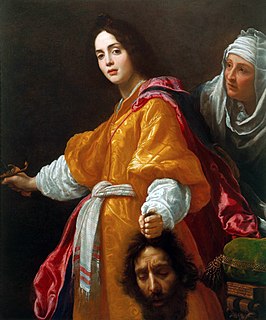 W
WThe deuterocanonical books are books and passages considered by the Catholic Church, the Eastern Orthodox Church, the Oriental Orthodox Churches and the Assyrian Church of the East to be canonical books of the Old Testament but which are considered non-canonical by Protestant denominations. They date from the period 300 BC–AD 100 approximately. While the New Testament never quotes from or ascribes canonical authority to these books, some say there is a correspondence of thought, while others see texts from these books being paraphrased, referred or alluded to many times in the New Testament, particularly in the Pauline epistles depending in large measure on what is counted as a reference.
 W
WThe Additions to Daniel comprise three chapters not found in the Hebrew/Aramaic text of Daniel. The text of these chapters is found in the Koine Greek Septuagint, the earliest Old Greek translation.
 W
WThe Book of Baruch is a deuterocanonical book of the Bible in some Christian traditions. In Judaism and most forms of Protestant Christianity, it is considered not to be part of the Bible. It is named after Baruch ben Neriah, Jeremiah's well-known scribe, who is mentioned at Baruch 1:1, and has been presumed to be the author of the whole work. The book is a reflection of a late Jewish writer on the circumstances of Jewish exiles from Babylon, with meditations on the theology and history of Israel, discussions of wisdom, and a direct address to residents of Jerusalem and the Diaspora. Some scholars propose that it was written during or shortly after the period of the Maccabees.
 W
WThe biblical apocrypha denotes the collection of apocryphal ancient books thought to have been written some time between 200 BC and 400 AD. Most Christian Churches include some or all of the same texts within the body of their version of the Old Testament.
 W
WThe Book of Judith is a deuterocanonical book, included in the Septuagint and the Catholic and Eastern Orthodox Christian Old Testament of the Bible, but excluded from the Hebrew canon and assigned by Protestants to their apocrypha. It tells of a Jewish widow, Judith, who uses her beauty and charm to destroy an Assyrian general and save Israel from oppression. The surviving Greek manuscripts contain several historical anachronisms, which is why some scholars now consider the book non-historical: a parable, a theological novel, or perhaps the first historical novel.
 W
WThe Book of Esther, also known in Hebrew as "the Scroll" (Megillah), is a book in the third section of the Jewish Tanakh and in the Christian Old Testament. It is one of the five Scrolls (Megillot) in the Hebrew Bible. It relates the story of a Hebrew woman in Persia, born as Hadassah but known as Esther, who becomes queen of Persia and thwarts a genocide of her people. The story forms the core of the Jewish festival of Purim, during which it is read aloud twice: once in the evening and again the following morning. The books of Esther and Song of Songs are the only books in the Hebrew Bible that do not mention God.
 W
WThe Letter of Jeremiah, also known as the Epistle of Jeremiah, is a deuterocanonical book of the Old Testament; this letter purports to have been written by Jeremiah to the Jews who were about to be carried away as captives to Babylon by Nebuchadnezzar. It is included in Roman Catholic Bibles as the final chapter of the Book of Baruch. It is also included in Orthodox Bibles as a separate book.
 W
WThe First Book of Maccabees, also called 1 Maccabees, is a book written in Hebrew by a Jewish author after the restoration of an independent Jewish kingdom by the Hasmonean dynasty, around the late 2nd century BC. The original Hebrew is lost and the most important surviving version is the Greek translation contained in the Septuagint. The book is held as canonical scripture by the Catholic, Orthodox, and Oriental Orthodox churches, but not by Protestant denominations nor any major branches of Judaism; it is not part of the Tanakh. Such Protestants consider it to be an apocryphal book.
 W
WThe Second Book of Maccabees, also called 2 Maccabees, is a deuterocanonical book originally in Greek which focuses on the Maccabean Revolt against Antiochus IV Epiphanes and concludes with the defeat of the Seleucid Empire general Nicanor in 161 BC by Judas Maccabeus, the hero of the hard work.
 W
WThe Book of Sirach, also called the Wisdom of Sirach or simply Sirach, and also known as the Book of Ecclesiasticus or Ben Sira, is a Jewish work originally in Hebrew of ethical teachings, from approximately 200 to 175 BCE, written by the Jewish scribe Ben Sira of Jerusalem, on the inspiration of his father Joshua son of Sirach, sometimes called Jesus son of Sirach or Yeshua ben Eliezer ben Sira.
 W
WThe Book of Wisdom, or the Wisdom of Solomon, is a Jewish work written in Greek and most likely composed in Alexandria, Egypt. Generally dated to the mid first century BC, the central theme of the work is "Wisdom" itself, appearing under two principal aspects. In its relation to man, Wisdom is the perfection of knowledge of the righteous as a gift from God showing itself in action. In direct relation to God, Wisdom is with God from all eternity. It is one of the seven Sapiential or wisdom books comprising the Septuagint, the others being Psalms, Proverbs, Ecclesiastes, Song of Songs, Job, and Sirach. It is included in the canon of Deuterocanonical books by the Roman Catholic Church and the anagignoskomena of the Eastern Orthodox Church. Most Protestants consider it part of the Apocrypha.